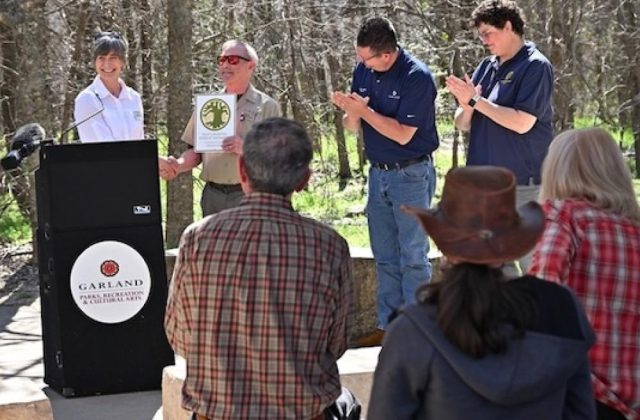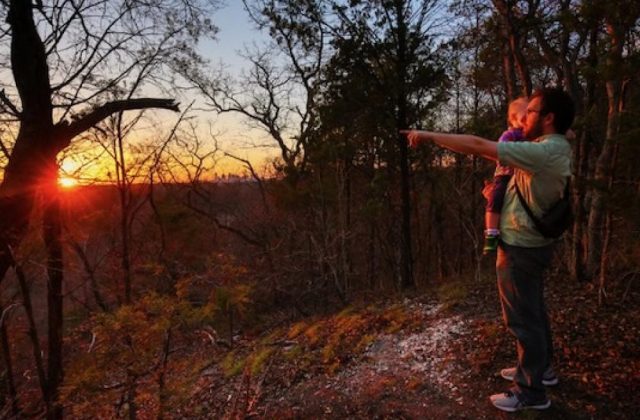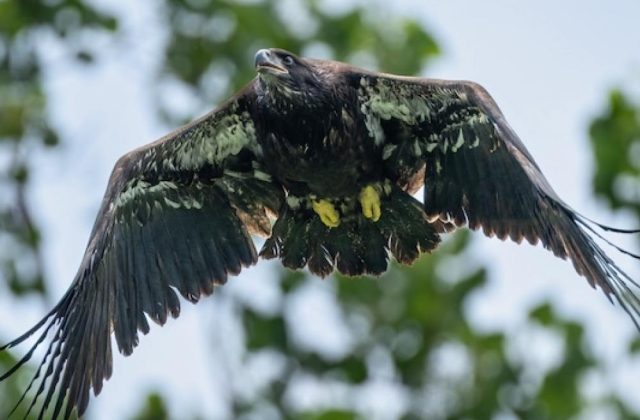The Folly of Force & Mosquitos
by Amy Martin
We know. We know that that we live in an ecosystem that struggles to stay balanced and healthy. We know we are connected to the ecosystem and connected to each other in a web of life. It’s clear to us that by spraying poisons only one day ‘s worth of mosquitoes are killed. Also killed are the mosquito predators like dragonflies and frogs. Days after the spraying, new mosquitoes will emerge, lay their eggs which will hatch with few predators to keep them in check. Which, of course, will lead to calls for more spraying, ad infinitum until the weather curtails the mosquito population.
Such short-terming thinking! By not working with the ecosystem, by waiting until West Nile Virus was in a crisis state, they have to work harder, spend more money, and inflict much damage as they do.
West Nile Virus is a tragic problem. People have died, left loved ones wracked with grief, and the epicenter of the virus is Dallas. That makes it even more important to think long term, act smart and work with the ecosystem that produced the problem in the first place. The option that other cities have followed is to distribute larvacides that destroy mosquito eggs and larva. As adult mosquitos die out and there are no young emerging to replace them. It’s not direct, it’s not immediate, it’s not visible. It’s working with the ecosystem and setting something in motion that pays dividends a short way down the road that last much longer.
But killing mosquitos makes leaders feel like they’ve done something, and the petrochemical pesticide lobby has more influence to those in power than companies who sell biological larvacides. Short term, might-makes-right thinking and showboat politics. Classic dominator-model mindframe. The cognitive dissonance from Dallas and surrounding suburbs’ actions is mind-blowing: “We care about you, so we will spray everything with poison and create more mosquitos. But we’ll look like heroes.”
No, you look like dinosaurs.
The situation has left me convinced that getting the Moonlady News website up and public is more important than ever. People in power need to hear our message that we are all one web and that to do harm to one part does harm to it all. This holistic way of looking at life is not lost in polarities that fool us into thinking our options are limited. We face down fear, tame our reactions, look at the entirety of a situation and think long term.
Aerial spraying is set to start on Thursday evening. East Dallas and White Rock Lake has been targeted first. But rainy weather may delay. Allegedly you can find the latest news on when and where the aerial spraying will occur here — http://www.dallascityhall.com/westNile_aerial-spraying.html — but the city of Dallas is also notoriously incompetent about their website operations.
Precautions:
- Bring in: all pets, bird feeders, animal bedding, chair pads and any textiles that absorb, tools and anything you pick up regularly with your hands. (Touching the spray and that touching your face can cause real problems.)
- Cover with the strongest tarps you can find: pond, vegetable and fruit plants, flowers and nectar plants (protect bees and hummingbirds!), bee hives, chicken coops, and so on.
Afterwards:
- Keep animals in for a day. This is especially important for cats who are extremely sensitive to this pesticide.
- Apply zeolite, activated charcoal, humate, dry molasses or compost to your lawn and garden to help neutralize the spray’s toxicity. (You can also do this prior to spraying.)
- Rinse off everything in your yard, including your car, very well. Don’t forget fences, trees and roofs where cats climb.
Websites for more info on spraying:
- http://stopthespraydallas.blogspot.com/
- http://www.dallascityhall.com/westNile_aerial-spraying.html
Natural mosquito control info:
- from Howard Garrett: http://www.dirtdoctor.com/Mosquito-Spraying-West-Nile-Virus_vq1167.htm
I am immensely sad. I am sad for the victims of West Nile Virus. I am also sad for the future victims of West Nile Virus: the future children of pregnant women exposed to the pesticides, the people with respiratory issues who will be sickened by the toxic fog, the caretakers of animals (especially cats) who will mourn the loss of their companions. Take pictures of the damage, chronicle the loss, especially at our lakes and parks where animals can not be protected.





